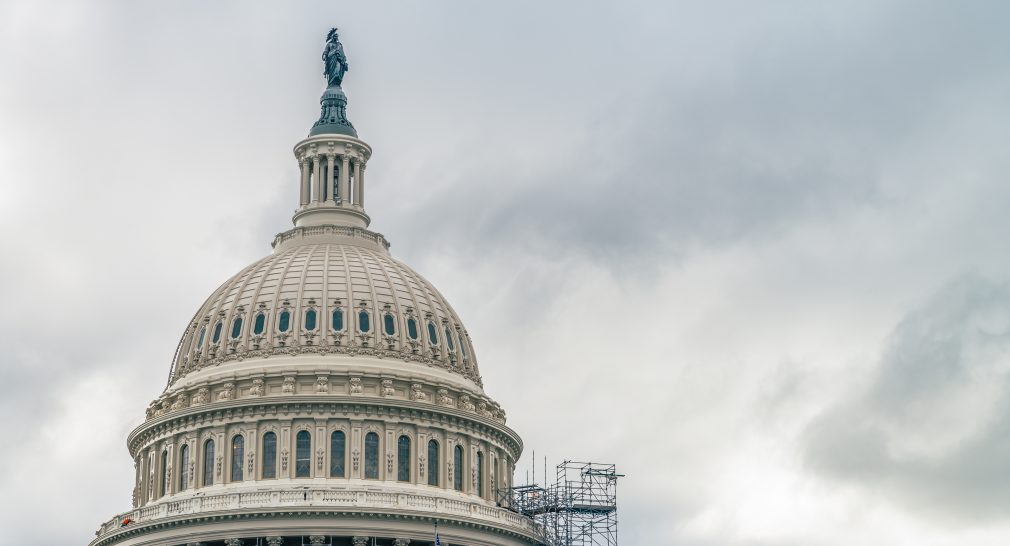Sen. Elizabeth Warren, D-Mass., entered Tuesday night’s debate as the new frontrunner and she took heat from other candidates accordingly. Because of the debate’s format, which allowed candidates to respond when others called them out, Warren got more talking time than anyone else, and most media outlets gave her credit for winning the night.
But for many in the mortgage industry, Warren’s ascent is anything but good news. Unlike the average American, who has likely never heard of the Consumer Financial Protection Bureau, those in financial fields understand that what Warren sees as her crowning achievement could actually cripple the housing market and larger U.S. economy.
When challenged toward the end of the debate on her ability to enact her many policy proposals, Warren pointed to the creation of the CFPB as proof positive she can get things done. Sen. Joe Biden, D-Del., jumped in to try to take some of the credit, reminding the audience that he helped her get the votes for the Dodd-Frank Act that established the bureau, but Warren refused to yield. In a reply that the crowd immediately recognized as full-on shade, Warren expressly thanked former President Obama, not Biden, for his help in making the CFPB a reality.
In truth, the credit for the CFPB does belong to Warren. She was not only the chief architect of its structure, but she was also relentless in seeing it come to pass, serving as a very effective thorn in Obama’s side throughout the process.
But in pointing to this as her signature victory, consider what Warren is saying: Her legacy, her biggest contribution to this country, is the creation of a government agency to protect consumers from businesses. That speaks volumes about what she thinks of the American economic system, despite her announcement last year that she is indeed a capitalist.
At heart, she sees business — specifically “big banks” — as the problem and government regulation as the solution. In the aftermath of the financial crisis, many Americans agreed with her, but going forward, voters need to decide what the right level of regulation looks like. As I’ve written before, finding the Goldilocks balance of regulation versus growth is tricky, especially if we’re headed into some sort of recession.
Make no mistake, no one wants a repeat of the financial crisis. The mortgage meltdown and the foreclosure epidemic were dark days for every American, including financial professionals, some of whom still feel the shock of it and its aftermath as a sort of collective trauma. Despite the regular rotation of news stories touting the comeback of some form of subprime that’s going to wreck the economy, the appetite for anything approaching that kind of risk is very low.
Still, there will always be people seeking to take advantage of others to their own benefit, and some level of regulation is absolutely necessary, especially when it comes to consumer finance. But when you’re a hammer, everything starts looking like a nail, and Warren’s strong inclination is toward regulation so oppressive it could put many lenders right out of business and ultimately hurt the very consumers she wants to protect.
When I started reporting on the mortgage industry in 2013, every other story seemed to concern regulation. Lenders were scrambling to adhere to the Qualified Mortgage standard and Ability-to-Repay requirements, then grappled with the nightmare that was TRID — and those don’t even count the disparate impact doctrine of the Equal Credit Opportunity Act or other regulations. Mortgage companies spent untold time, money and effort to change processes and procedures, increase quality control and prove compliance.
Today, every other story is likely to be on a new technology or application that is making the mortgage process easier, faster and better for consumers. This automation was fueled in part by compliance requirements, which were almost impossible to meet with a paper-based process. But the wave of digital innovation is also a result of companies freeing up dollars for something other than compliance, a state of being that would be wholly at risk in a Warren presidency.
The Trump administration’s agenda of regulatory dismemberment stalled the federal regulatory effort but fueled the rise of aggressive state efforts. Now, instead of complying with consolidated Federal regulations led and enforced by the CFPB, mortgage companies have to contend with 52 sets of different regulations and even more regulators. That’s one reason the cost to originate a mortgage is sky-high compared to historical averages, soaring to $8,611 on average in the fourth quarter of 2018.
Unfortunately, those state regulators are unlikely to loosen their hold even if a strong federal regulatory presence is restored. The future for mortgage compliance under any Democrat’s administration will be tighter than it is now, but a Warren presidency, which would see the CFPB come roaring back to life, presents an especially bleak picture.
Voters need to decide what level of regulation serves as a reasonable restraint versus regulation that becomes a choke point that ultimately makes it harder to achieve the American dream of homeownership.






